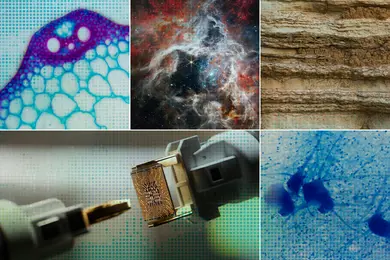Accelerating Scientific Discovery With Artificial Intelligence

In a quiet lab not far from MIT, science is speeding up, and it’s not because of more scientists. Instead, it’s thanks to a new breed of AI agents designed to think, plan, and experiment like junior researchers.
A startup called FutureHouse, co-founded by MIT alumnus Sam Rodriques, PhD ’19, is building AI-driven systems that can automate some of the most time-consuming parts of scientific discovery. These AI agents don’t just crunch numbers, they’re designed to ask questions, analyze data, and suggest hypotheses, helping scientists move from raw ideas to working experiments faster than ever before.
Scientific progress is often slowed by tedious steps, like designing experimental protocols or combing through thousands of possible materials. FutureHouse’s AI agents can perform these tasks in minutes. One tool, for example, can generate viable lab protocols for testing a hypothesis and even flag potential errors in experimental design, long before a single pipette is lifted.
Imagine trying to develop a new biodegradable plastic. Normally, a chemist might spend months narrowing down molecular candidates. But with the help of an AI assistant trained on massive chemistry datasets, researchers could simulate and filter options in hours, drastically shortening development time.
Another AI system is helping design custom proteins for gene therapy, evaluating endless variations with incredible speed. These aren’t hypothetical tools, they’re already being used by academic labs and biotech companies exploring everything from climate-resilient crops to neurodegenerative disease models.
Rodriques compares the potential of AI in science to the way deep learning transformed language and image recognition. “We’re not just speeding things up, we’re opening doors to discoveries that would never have been feasible before,” he says.
While these AI systems won’t replace scientists anytime soon, they could soon become as essential as the microscope once was. By automating the bottlenecks, AI may give human researchers more time to focus on what they do best, asking bold questions and chasing big ideas.